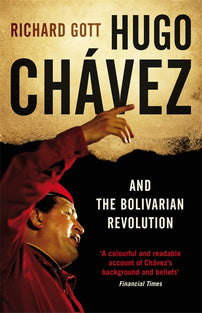The Extradition of Cesare Battisti: Bolivia’s “Gift” to Italian Neofascism and “Brother” Bolsonaro
The extradition of Cesare Battisti, crime novelist and former Italian leftwing militant who had been living in exile in France and Brazil since the late 1970s, demonstrates a worrying new level of collusion between right-wing governments in Europe and Latin America. However, Battisti's arrest occured in Bolivia and with the approval of the country's left-wing leader Evo Morales. In this article, Pablo Stefanoni argues that Bolivia's president has found himself tangled up in an operation that goes to the heart of an emerging new extreme-right international.

Let us begin at the end: on Sunday, January 13, an airplane carrying police and Italian intelligence agents landed in Bolivia at the Viru Viru airport in Santa Cruz de la Sierra, and left shortly thereafter with Cesare Battisti.
Battisti, a present-day crime novelist, is also a former member of Armed Proletarians for Communism (PAC), a far-left group active during the Italian “years of lead”. He was sentenced to life in prison for four crimes, two as the perpetrator and two more as an accomplice.
Battisti was delivered to the Ciampino Italian military airport at 11:36 a.m., on Monday 14. Awaiting him there was the Italian Interior Minister and government leader Matteo Salvini, a key neo-fascist figure in the xenophobic Trumpian axis that Bolivia has made a habit of criticizing. A few days prior Battisti had fled Brazil for Bolivia, leaving behind the country where under the PT government he had enjoyed refugee status. During his campaign Bolsonaro had promised to return Battisti to Italy. The question remains: why did Bolivia have to comply with the campaign pledge of the new extreme-right president?
For 40 years governments of different ideological persuasion have refused to extradite Battisti to Italy. To the surprise of many, Evo Morales handed him over after only 24 hours, denying not only his request for refugee status but also his basic right to a conventional extradition process, where the case could at least have been subject to review. By facilitating Battisti’s extradition, the Bolivian president has found himself tangled up in an armed operation that goes to the heart of an emerging Italo-Brazilian axis, where both heads of state are actively seeking to build an extreme-right international.
As news spread, it was revealed that Battisti’s asylum request had been processed in record time: less than five days, including the weekend and the Christmas holiday. Who could possibly believe that the National Refugee Commission (CONARE) met and evaluated the case in a competent manner, with due consideration for the law? Bolivian minister Carlos Romero cited Battisti’s illegal border crossing as sufficient reason for his deportation to Italy, but since the Italian peninsula was not his last port of exit, the operation amounts to a clandestine extradition: a maneuver in which the Italian lacks any means for defense or chance to appeal the decision.
This type of proceeding also exposes the existing legal conditions of the country responsible for extradition. There is plenty of lip service in Bolivia against the extreme right, but the Bolivian government apparently felt it was acting within the strictures of democratic rule by cheerfully handing over a man convicted of political violence in the 1970s.
The media was quick to pick up on the episode, casting the arrest of the Italian ex-militant as a “sly wink” by Bolsonaro in Salvini’s direction. But if the new Brazilian president wanted to send an offering to his Italian colleague, Evo Morales delivered his own gift to “brother Bolsonaro”, as he recently referred to the Brazilian head of state in a recent tweet. A question mark hangs over the whole episode: was the express delivery already negotiated on January 1st during the swearing-in of Bolsonaro?
The general understanding is that Bolivia is seeking peaceful coexistence with Brazil out of economic necessity (gas sales), and to some extent out of political necessity as well (avoiding Bolsonaro’s financial support for the opposition). And yet, no matter how much Evo’s head has been turned by the new Brazilian “mito” (as the president’s supporters call him), this is not an issue having to do with Brazil but with Italy. Bolsonaro would clearly have preferred to deliver Battisti himself, but the course of events proved more acceptable than the alternative: if Bolivia had decided to seriously tackle the case and not toe the line set by the “Mito”.
As far as the Bolivian government was concerned, the issue was a foreign concern that could only become a stumbling block on the path of Evo’s reelection project, which in turn is the real purpose for his “process of change” that marches forward despite the No vote in the February 2016 reelection referendum. Having made his decision, the Bolivian president showed himself to be completely out of step with a historically central topic in leftist culture: solidarity.
Italy’s Proletarians for Communism combined political and social struggles: politicizing the issue of prison inmates (outlaws) while imaging political militants as another sort of outlaw, the underlying idea was that both groups share a common struggle against the system. As is often the case with such political tendencies, the PAC practiced a form of justice that was sometimes worse than “bourgeois justice”. But the point is not to condemn or justify these projects, many of which seem outlandish today. The example of former guerilla members-turned heads of state, like Dilma Rousseff or José Pepe Mujica, draws a line under this attitude towards past struggles. Historically, government authorities in La Paz have warmly received ex-guerrillas.
Battisti fled France for Mexico in 1981, only to return to France in 1990 during then-president François Mitterrand’s second term. Settled again in France, Battisti remade himself as a popular crime-thriller novelist. The “Mitterrand doctrine,” as it was known, refused the extradition of former militants and leaders from the Italian extreme-left: “I refuse to consider a priori as active and dangerous terrorists those men who arrived from Italy long ago and who have since repented…in part or in full …France has and will continue to show solidarity with its European partners, and out of respect for its principles and laws will reject all direct or indirect protection for real, active, bloody terrorism.”
Technically, Battisti was never formally covered by the “doctrine” on account of his being implicated in violent crimes, but in practical terms he enjoyed sanctuary from extradition (Bernard-Henri Lévy and Carla Bruni were among those who defended him) up until 2004, when he was forced to flee again and finally landed in Brazil, where he spent time behind bars before being released.
In Bolivia, minister Carlos Romero offered a statement that sounded more like the interior minister of an “Alt-Right” government than the French social-democratic president, justifying the immediate deportation of Battisti (to Italy, a curious detail considering he hadn’t arrived there yet) on the grounds that the Italian had entered Bolivia illegally. The ombudsman David Tezanos Pinto remarked: “Battisti was not interviewed nor was he even informed of his denied refugee status, both fundamental aspects of due process […], which violates the principles of “non-refoulement” and “non-deportation”.
Battisti’s extradition, which Bolsonaro and Salvini like to fantasize as a kind of Plan Condor operetta, carries an additional political charge. The history of Bolivian vice president Álvaro García Linera should have impeded the government’s decision: García Linera was himself a prisoner, and while he did not stand accused of murder, he was tried and sentenced for terrorism in the 90s for his activity with the Túpac Katari Guerilla Army. Moreover, the Italian intellectual Antonio Negri, a popular figure in Bolivia who has shared speaking events with García Linera and whose books are published by the vice-presidency press, was tried in Italy for his activity with the Potere Operaio group and was accused of being a mastermind behind the Red Brigades. He too was a beneficiary of the Mitterrand doctrine up until he was able to negotiate his surrender and a reduced sentence in Italy. By way of contrast, Battisti was in no position to “negotiate” anything, and was dispatched directly into the care of the de facto Italian leader, who fondly quotes Mussolini and praises the Duce’s ultra-reactionary positions.
But the “Bolivian Doctrine” is not only remarkable for its lack of solidarity. It also reflects a contempt for the “bourgeois democratic” right to a fair trial. Evo’s decision is part of the regular functioning of a Bolivian legal system where endemic corruption, lack of independence and presidential decisionism tend to converge on the most important issues. This is what the Bolivian opposition can’t seem to understand, judging by their celebrations on social media for the way that Battisti was surrendered to the Italian government. For example, opposition leader Samuel Doria Medina –who recently condemned the Bolivarian Intelligence Services’ arbitrary detention of the Venezuelan National Assembly president Juan Guaidó– sent out a tweet that read: “Finally a bit of sanity. #EvoMorales surrenders rogue terrorist to #Italy”. But it was not a victory for sanity: refusing the extradition process, giving recourse to express deportation, this is the same arbitrary behavior that could easily be turned on the Bolivian opposition. And therein lies the problem with the variable geometry liberalism practiced by Latin America’s vernacular anti-populists.
Others, outraged by Battisti’s deportation but failing to see the episode as a violation of rights, prefer to imagine the Italian as a communist hero committed to the Bolivian Revolution, as if Bolivia were the USSR in the 1920s. The vice president’s own brother, Raúl García Linera, wrote that the surrender of Battisti constitutes the first counterrevolutionary measure of the Morales government.
In any case, while the majority of bureaucrats held their tongue as Evo handed over Battisti to the Milanese neo-fascist, García Linera’s brother has made public his differences with the government, unlike the silent loyalists who never miss an opportunity to inveigh against the legal system of rightwing governments abroad.
Salvini accepted the trophy in a fitting manner: the murderous communist is going to rot in jail, he declared while outfitted in police uniform. A day earlier, Jair Bolsonaro’s son had remarked that the “little gift” was on its way to Italy –even though Battisti had in fact been arrested in Bolivia– and Bolsonaro himself did everything but take full credit for his capture. Every attempt was made to have Battisti pass en route through Brazil on his way to Italy, in order that Bolsonaro and not a leftist government could receive credit for the capture and surrender.
La Razon informs: “Justice Minister Alfonso Bonafede explained that since the Brazilian penal code does not allow for life imprisonment, Italy had accepted a reduced sentence of 30 years in hopes of recovering the fugitive. That legal compromise is no longer in effect since he has been returned directly to Roma, although the difference between life in prison and a thirty-year sentence is of little relevance for a man aged 64 years”. That is to say, the fact that Bolivia and not Brazil surrendered Battisti means that his sentence has been compounded.
Evo Morales recently took exception when one of Bolsonaro’s deputies remarked that Brazil’s Indians should relocate to Bolivia. Now, Morales is suddenly left playing the part of the unwanted houseguest at the party thrown by the extreme-right international. Even Bolsonaro’s words of gratitude to Bolivia were laced with humiliating overtones: he thanked the Bolivian authorities for capturing a fugitive that had been given shelter by the “most corrupt government in the history of Brazil”. In other words, Lula, one of Evo’s closest allies, who is currently serving a twelve-year prison sentence thanks to Bolsonaro’s current Justice Minister.
-translated by Nicolas Allen
[book-strip index="1" style="display"]



